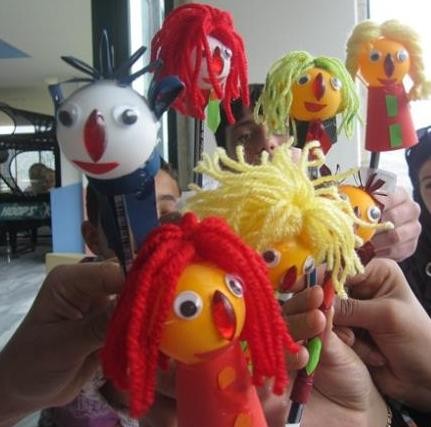
As the brutal conflict in Syria nears its third year, 9.3 million people now find themselves in need of humanitarian assistance and growing increasingly vulnerable with each passing day. Sadly, women and children often fare the worst in war, and the crisis in Syria is no exception.
Insecurity and violence forced Mariam and her five children to flee their home in Damascus not once, not even twice, but three times. They found safety sharing a room in an abandoned school with several other displaced families, but what they experienced in the process of fleeing is unimaginable.
Unfortunately, Mariam's story is not unique—6.5 million people are displaced within Syria and more than two million have sought security in neighboring countries. Nearly half of these refugees are children.The impact on the social and emotional well-being of Syrians like Mariam is considerable, and can have long-term consequences for children, women, their families and communities.
As one part of an ongoing effort to meet the most critical humanitarian needs of millions of people inside Syria, USAID's Office of U.S. Foreign Disaster Assistance helps provide psychosocial services through women's health centers, mobile clinics,and outreach workers to help Syrians deal with the stresses of conflict and displacement. USAID provides children with healing and learning spaces that offer a safe, stable environment to learn and play. Home-based support is assisting people living on the front lines who are unable to travel for care.
USAID partners also lead parent support programs aimed at equipping mothers, fathers, and caretakers with the knowledge and skills to cope with psychosocial stress and to provide appropriate protective care for their children.
"I learned methods of dealing with my children during these tough circumstances. The trainers encouraged the kids to interact and play together, which helped my son Mohammed overcome his fears and sadness," said Mariam.
The U.S. will continue to provide mental health support to people affected by the Syria crisis as they cope with the daily challenges of war—all part of the $1.3 billion in humanitarian assistance for the crisis.







Comment
Make a general inquiry or suggest an improvement.